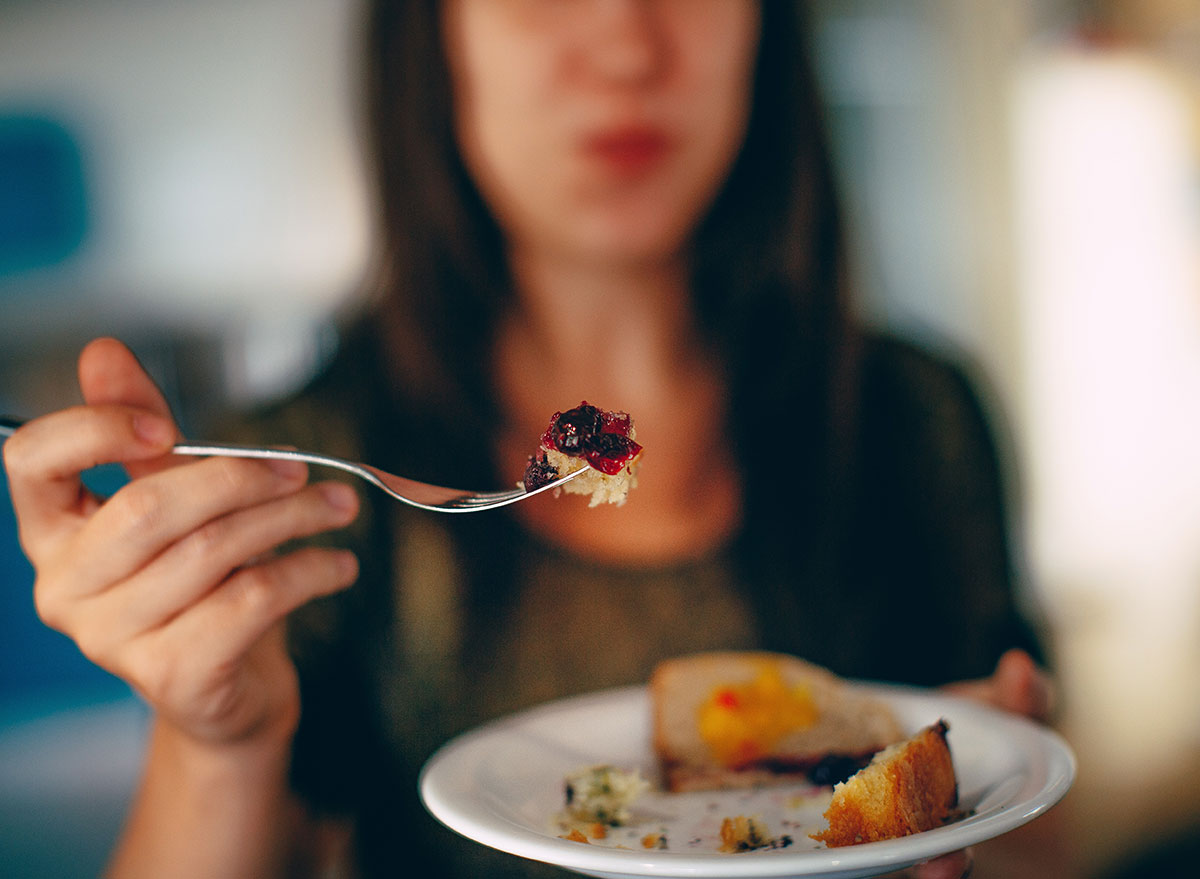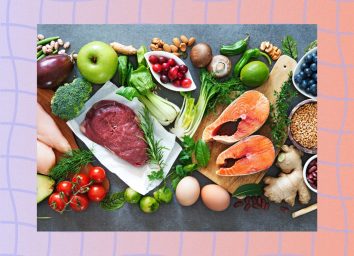Eating Habits to Avoid if You Want to Lose Weight, Say Dietitians
If you’re trying to lose weight, it’s not just your diet that needs to adjust—your eating habits can also play a major role in helping (or sabotaging) your weight loss goals.
“A lot of people know what they should be eating, but tend to struggle when implementing healthy habits around eating,” says Roxana Ehsani, MS, RD, CSSD, LDN, registered dietitian nutritionist and spokesperson for the Academy of Nutrition and Dietetics. “For example, I’ve seen a number of patients that are frustrated because they are eating well and exercising routinely but are not seeing desired weight loss results and don’t know why.”
Sound familiar? According to Ehsani, it comes down to discovering the eating habits that are hurting their weight loss attempts—which isn’t exactly as easy as it may seem, as not all “bad” eating habits are obvious ones. “Sometimes the person has been eating quickly all their life or is always eating while distracted or on the go,” says Ehsani. The good news? “Once we discover these unhealthy eating habits and start adopting healthier ones, we can start to see a shift in weight.”
Whether you’re aware of it or not, you may be falling into some of the same unhealthy habits that are hindering your weight loss. Here are habits to avoid if you want to lose weight, according to dietitians. Read on, and for more on how to eat healthy, don’t miss 7 Healthiest Foods to Eat Right Now.
Not taking a meal break during a workday.

“Most people are still working from home and are closer to their kitchens, but a recent survey found most people are still not taking a break for lunch. Many of us might be tempted to work throughout breakfast and lunch in an effort to get work done as quickly as possible,” says Ehsani.
“Not taking a proper meal break can actually do more harm than good. It can reduce our productivity, mood, and guarantee that we are overeating later on in the day, which can lead to weight gain over time.”
Cutting out meals.
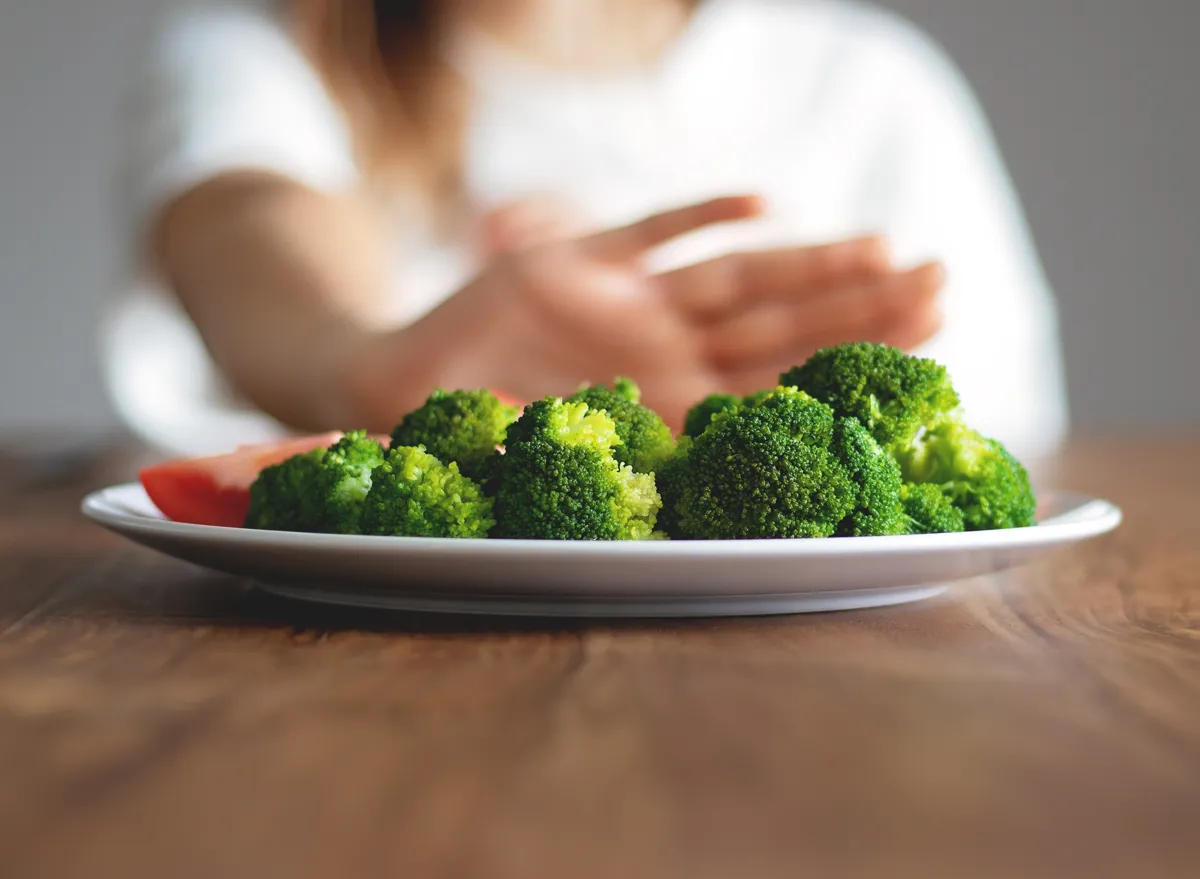
“The biggest mistake I see people make when it comes to weight loss is thinking that meal skipping is the best solution,” says Kristen Smith, MS, RDN, registered dietitian nutritionist and spokesperson for the Academy of Nutrition and Dietetics. “Many people don’t actually understand that you need to eat enough calories to keep your metabolism active – skipping meals may actually slow your metabolism down.”
She adds that this can also lead to extreme hunger, which can lead to overindulging, causing you to consume more calories than you would have if you didn’t skip the meal.
Eating at your work desk.
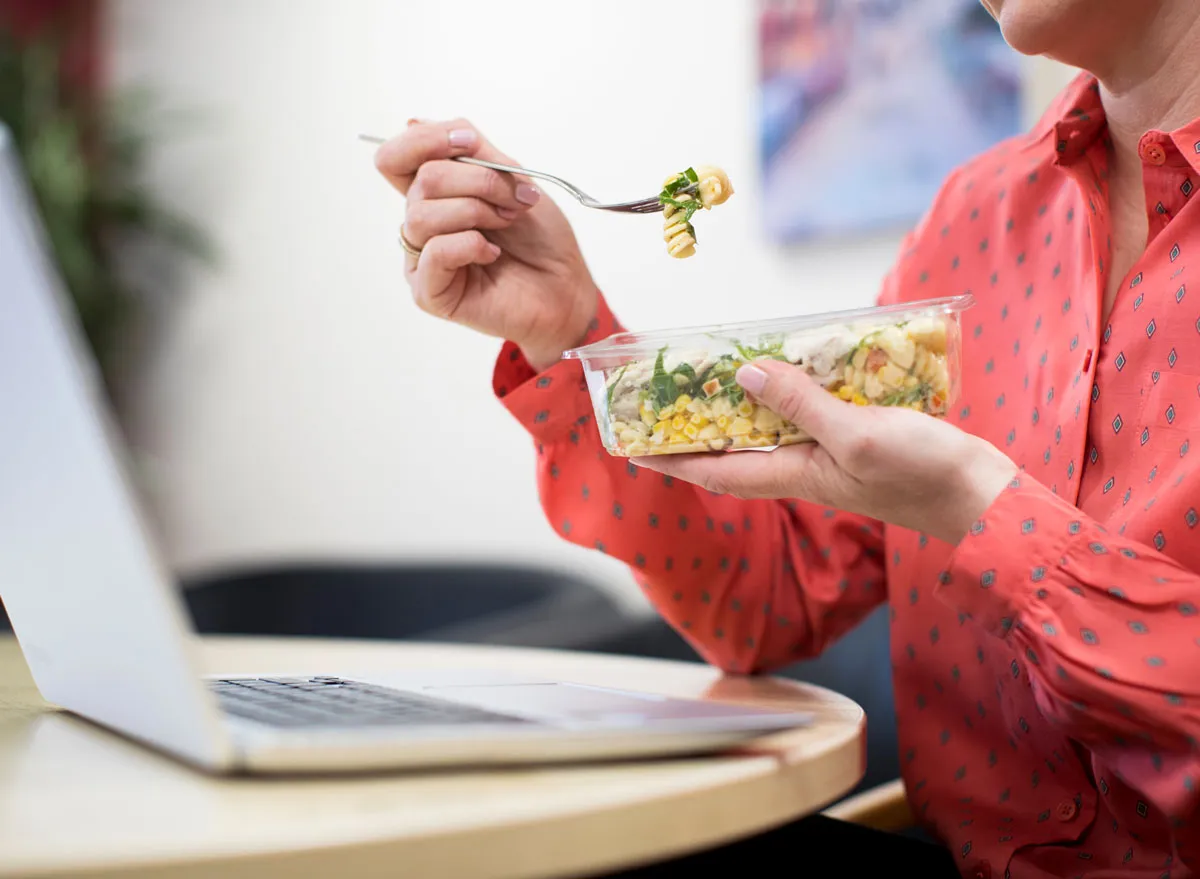
Many of us may be eating meals at our work desk in an effort to multitask. This not only diminishes the pleasure around our eating experience, but it also reduces our awareness of what and how much we are eating,” says Ehsani. “Instead of paying attention to the flavors, aroma, and sight of the food in front of us, we are distracted and may find ourselves quickly eating the food without having noticed what we just ate.”
Choosing a quick-fix diet plan.

“I never advise clients to approach weight loss with a quick fix diet plan. Implementing diets like the lemonade diet or cabbage soup diet is really only setting you up for frustration and failure,” says Smith. “Sure you will lose weight, but there is a pretty high probability you won’t keep it off. When it comes to your eating habits and weight loss, it’s important to find a plan that ensures adequate nutrition intake and is something you can stick with for the long haul.”
Eating in front of a screen.
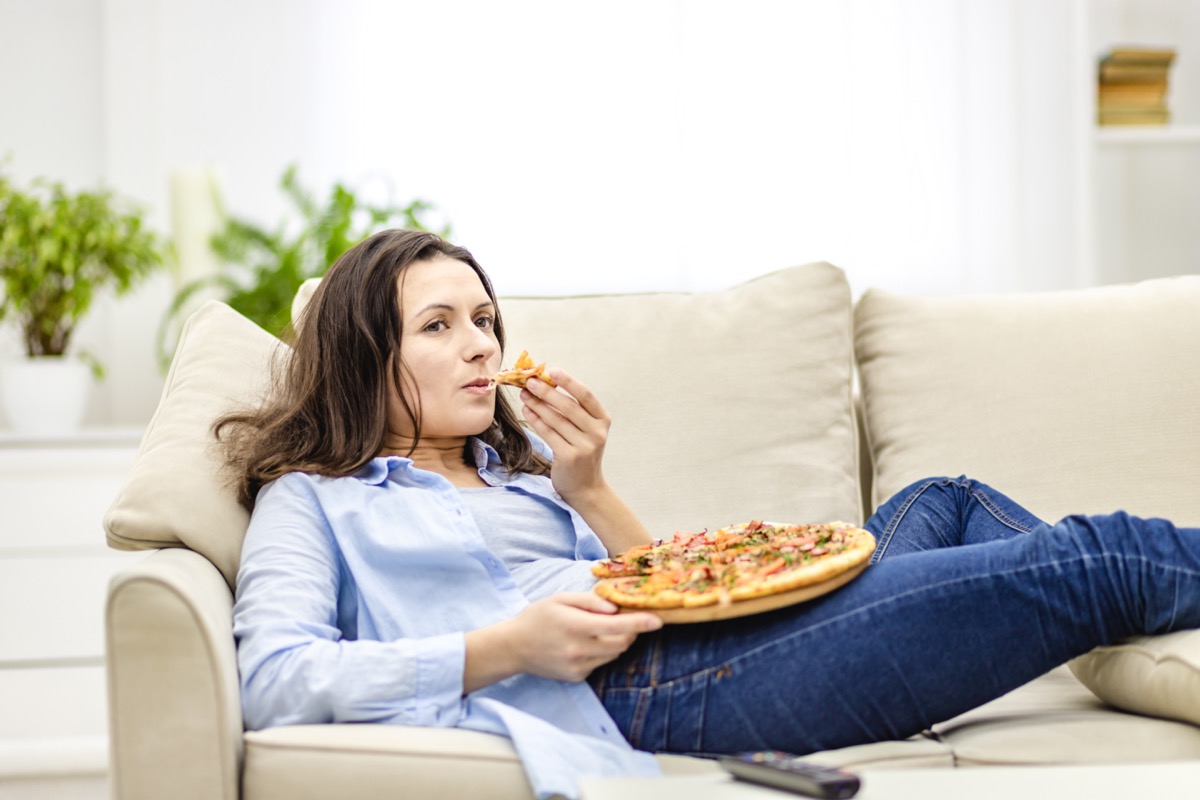
“When we eat in front of a screen such as a computer, TV or phone, it can also lead us to gain weight and prevent us from losing weight,” says Ehsani. “We are more focused on the screen in front of us rather than our food! It causes us to mindlessly eat and not tune into our fullness and hunger cues. We also tend to eat more when we are distracted and may also increase the time period we are eating.”
Going the low-fat route.
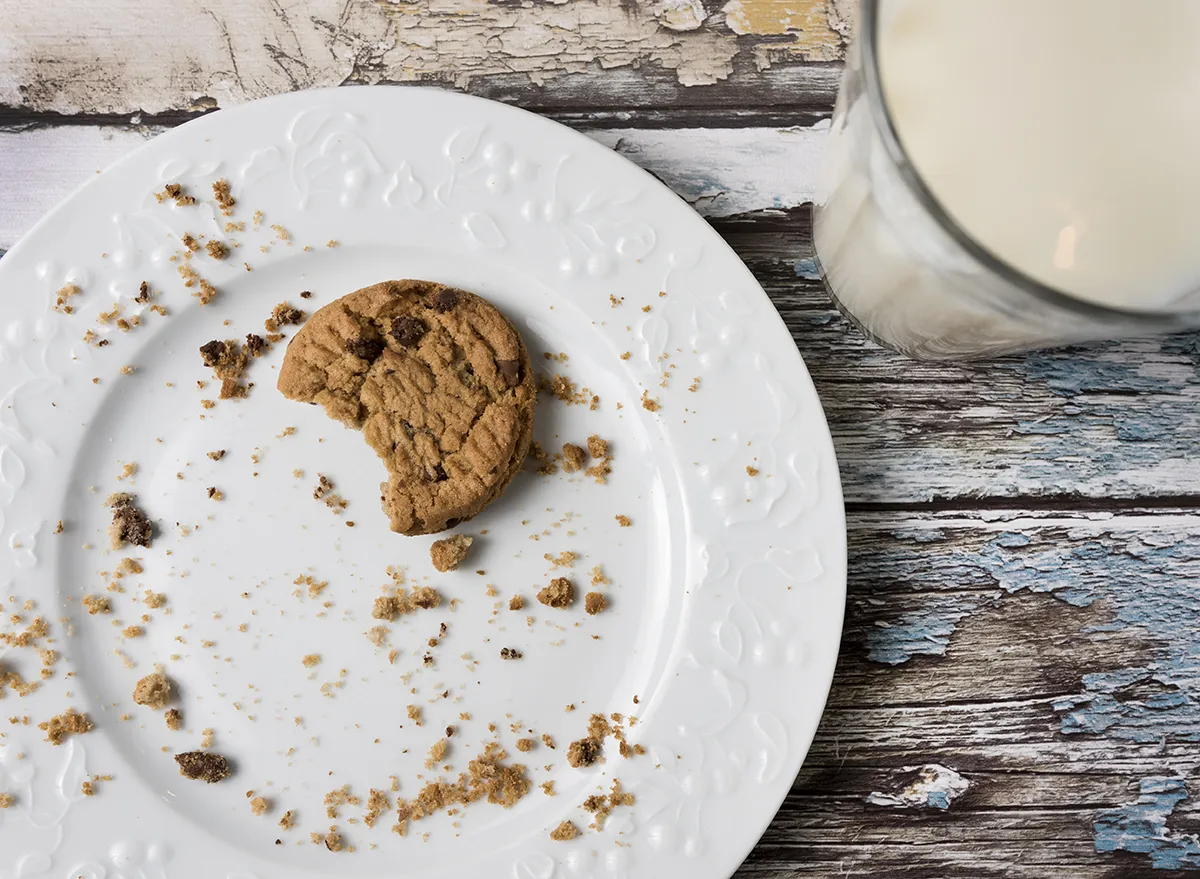
“Try to erase the mindset that you need to choose low-fat versions of food when available. Our country has followed the low-fat diet trend for several decades without seeing an improvement in overall weight status,” says Smith. “While you should still keep higher fat foods in moderation, the full fat version of a food may actually help to keep you more satiated. Fat can be a satiating component of foods. And some fats like avocado, olive oil, and peanut butter can offer some benefits to your heart when consumed in moderation.”
Eating too fast.

“Eating quickly can lead to overeating and weight gain. It takes about 20 minutes for your brain to register that you are full, but if you’re eating quicker than that, it can lead to overeating,” says Ehsani. “It can also cause people to experience more gastrointestinal issues such as bloating, belching, and upset stomach. If you notice you’re a fast eater, try to take a few deep breaths before you start your meal and make an effort to put down your utensils in between bites of food.”
Eating a gluten-free diet.
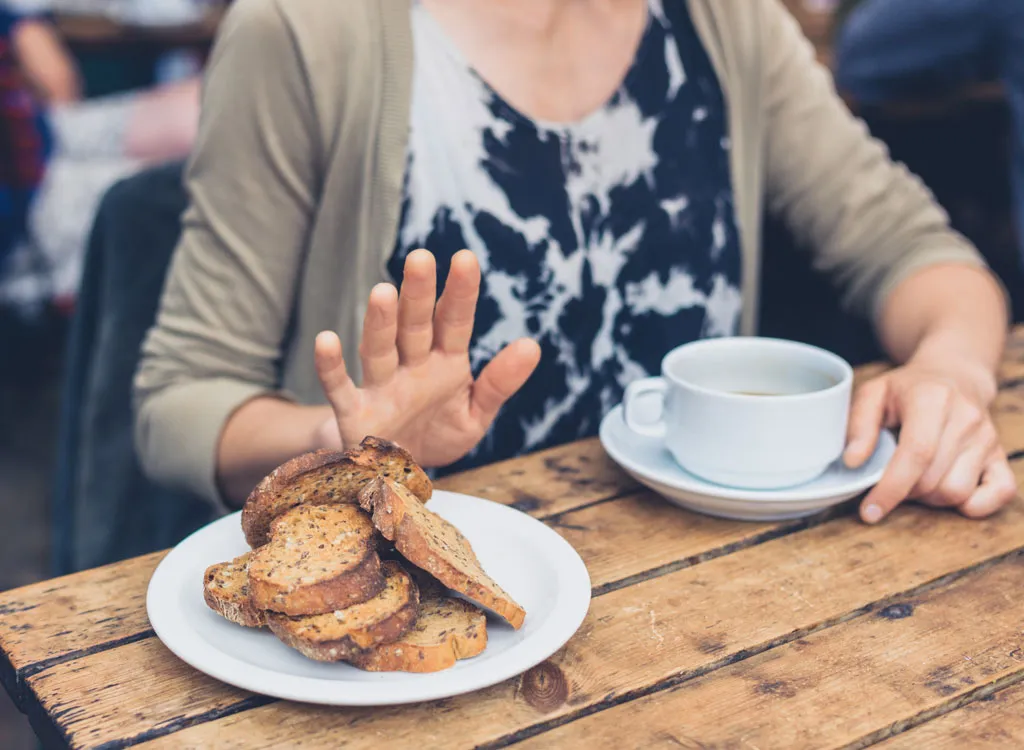
“When more gluten-free products started hitting the shelves I saw more of my clients reaching for them in hopes they would provide another tool for weight loss. Unfortunately, there is absolutely no scientific evidence to support following a gluten-free diet for weight loss will help,” says Smith. “With the rise of more processed and commercially prepared gluten-free products available, many of these gluten-free products contain a substantial amount of calories and fats.”
READ MORE: 5 Major Mistakes You’re Making on a Gluten-Free Diet
Fasting for too long.
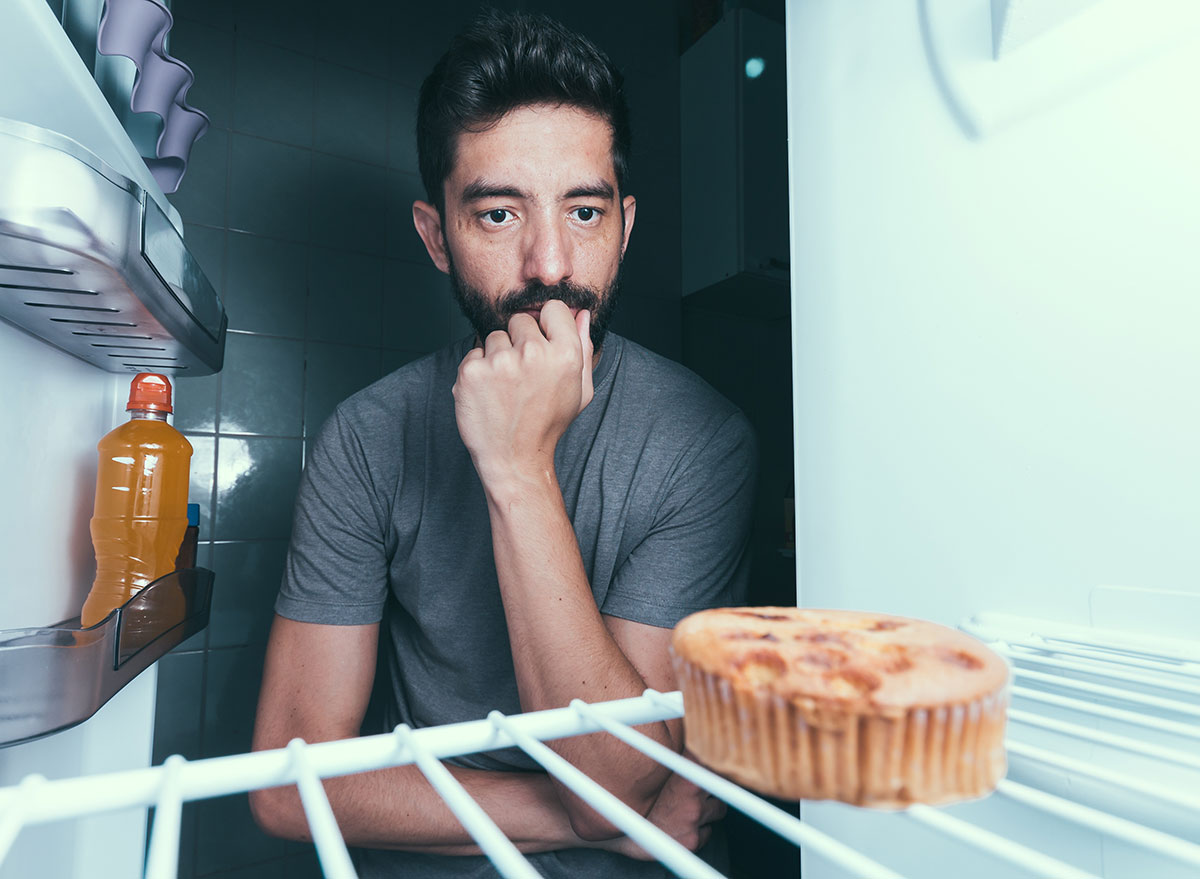
“Intermittent fasting has become popular over the past few years as a method for losing weight. However, only allowing yourself to eat during a set window of time doesn’t allow yourself to pay attention to your internal hunger cues,” says Ehsani. “For example, if you only allow yourself to eat from 12-8 pm, what if you’re hungry at 10 am or at 10 pm? Will you just ignore your hunger cues? Or since you are only allowing yourself to eat from 12-8 pm, you might overeat at those meals because you don’t want to feel hungry and eat during your fast period.”
Drinking smoothies for a meal replacement.
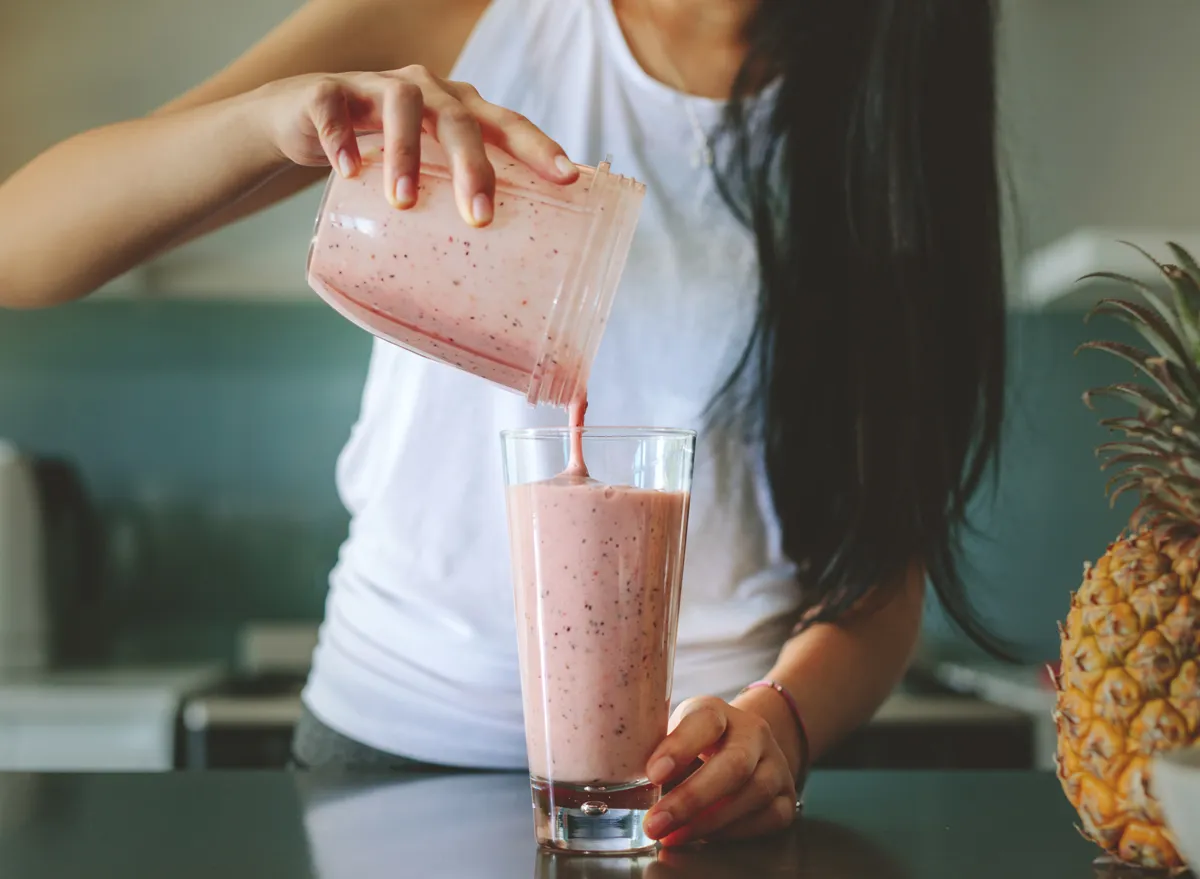
“Smoothies can make an excellent meal, however they can also add up in calories quite quickly,” says Smith. “Including excessive amounts of added fats from avocado, high fat yogurt or peanut butter can definitely add up in calories quickly. Adding juices or other sweetened ingredients can also up the calorie content. Given many of the ingredients are already partially broken down, smoothies may not always be the most satiating food choice. You can be left feeling hungry shortly after consuming a smoothie.”
Going sugar-free.

“Something labeled sugar-free doesn’t necessarily mean it’s calorie-free,” says Smith. “I often see people make the mistake of eating excessive amounts of sugar-free foods (like cookies) with the mindset that they are eating calorie-free foods. The calories can still add up quickly with foods made with non-nutritive sweeteners – they do still contain other carbohydrate and fat sources.”
Read this next:
